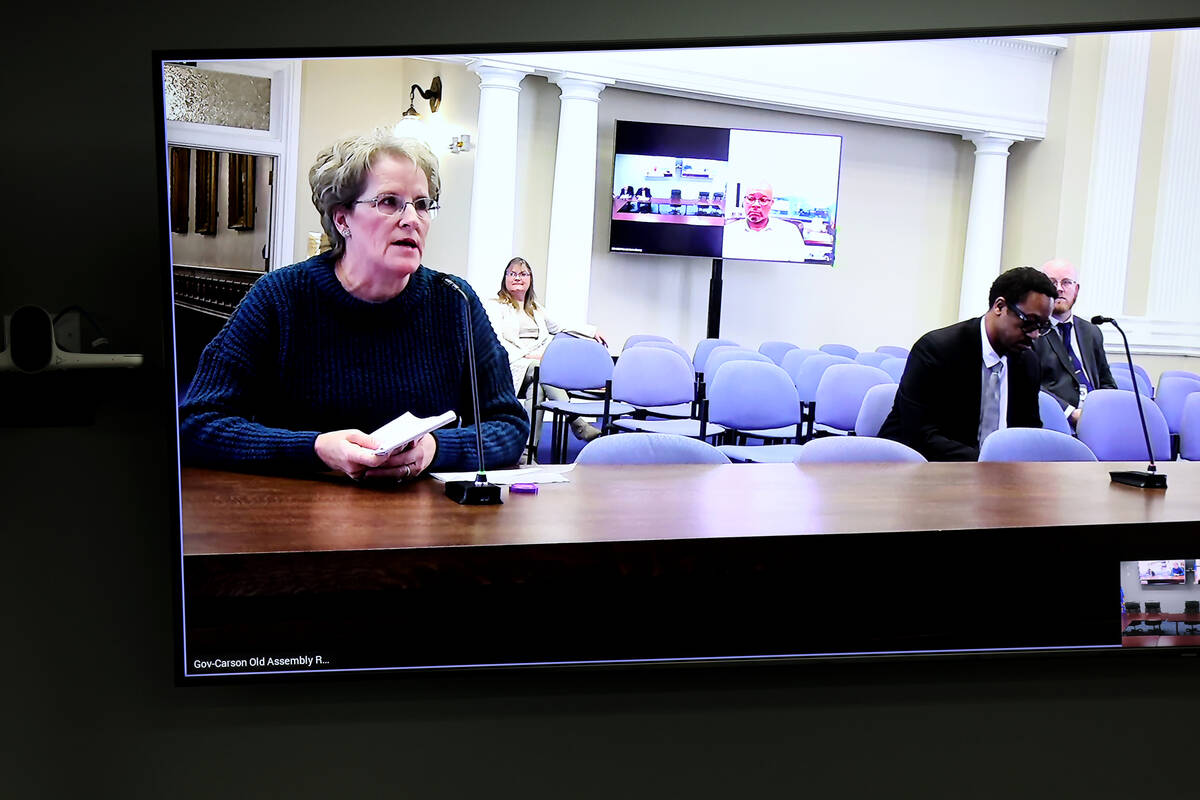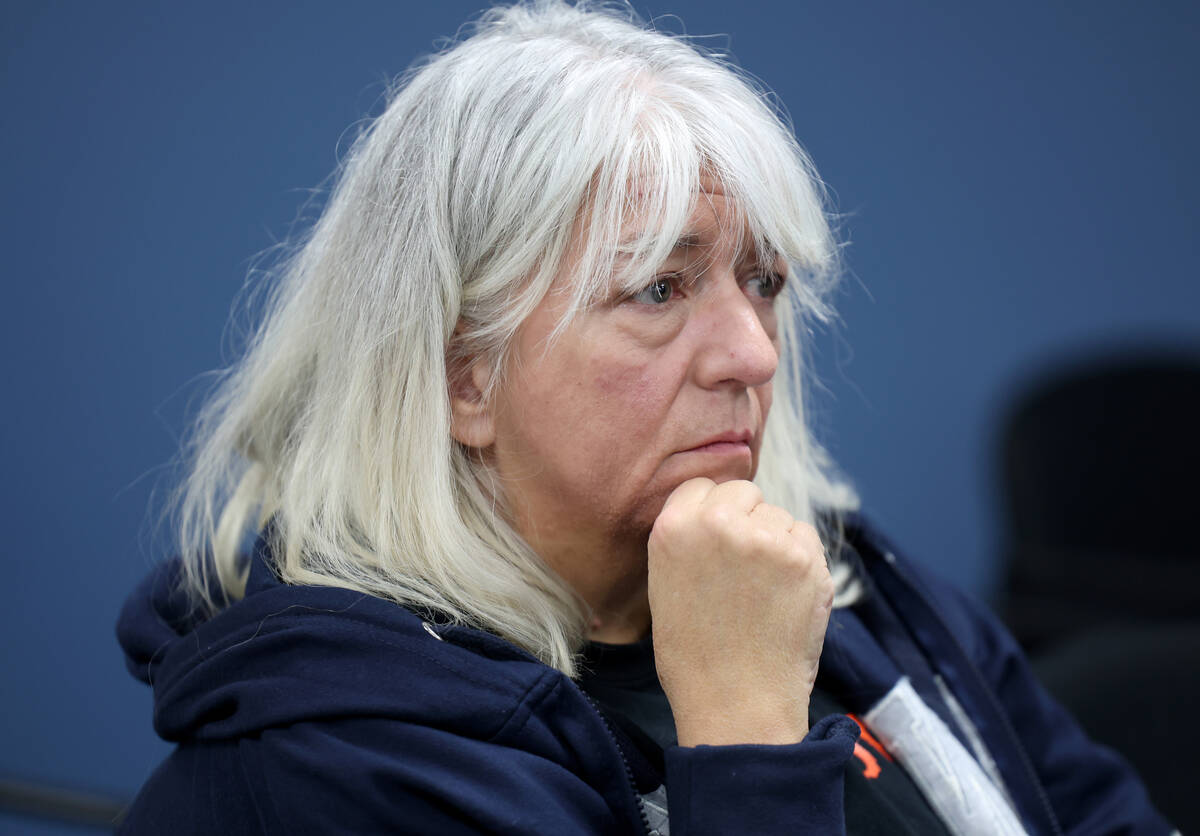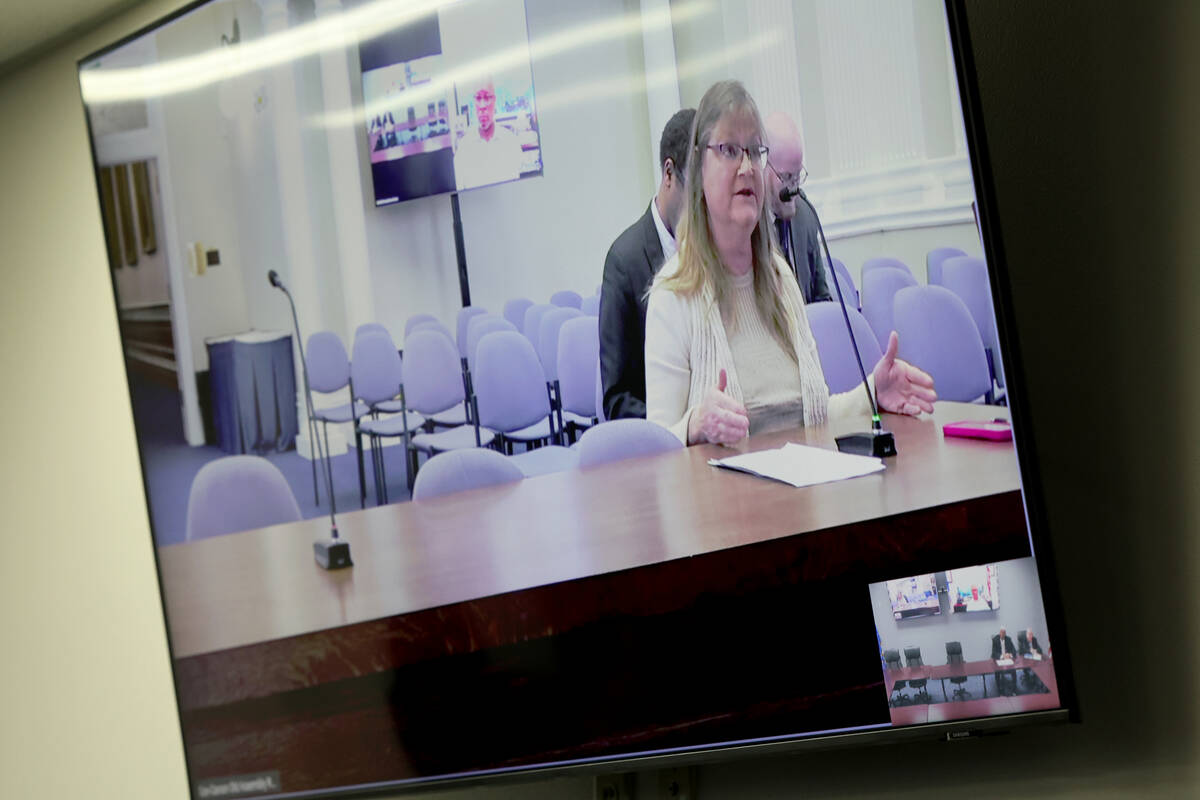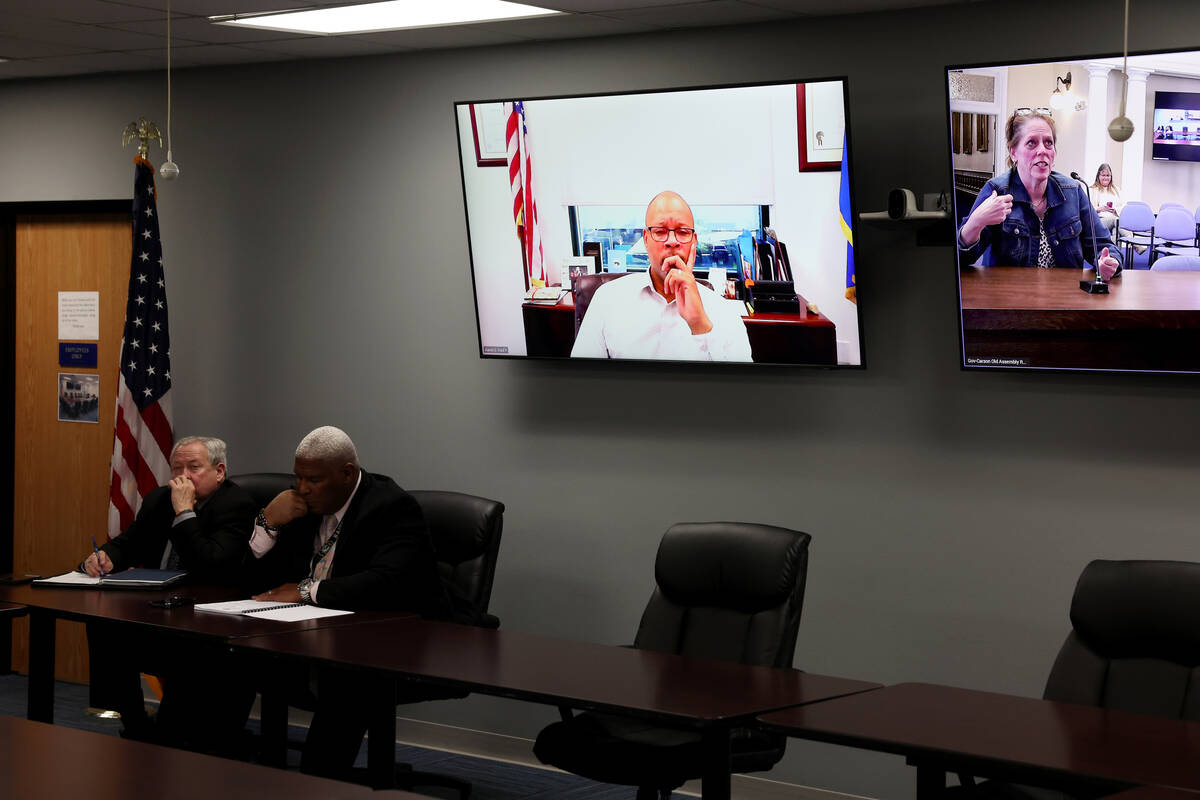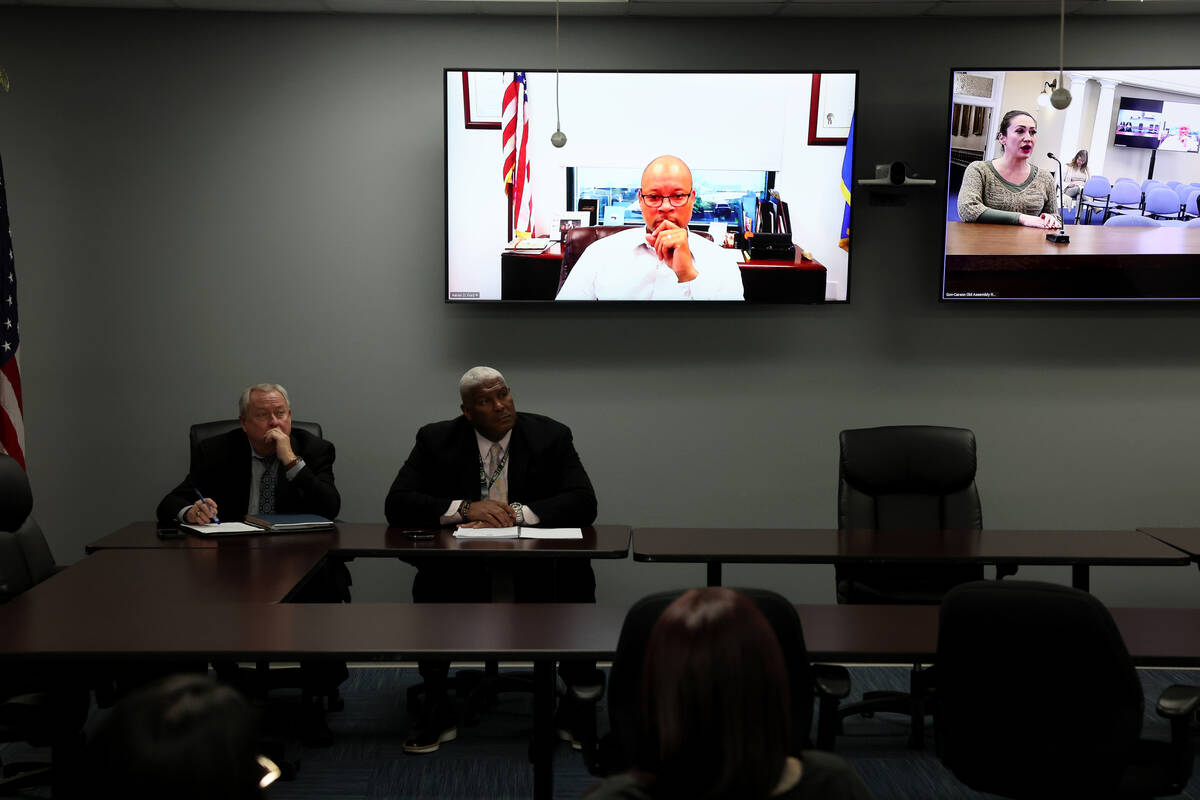Family members of Nevada inmates share health concerns with state board after violations found
Inmates’ family members shared concerns about the health of their incarcerated loved ones at a meeting of the state’s Board of Prison Commissioners Thursday after multiple state prisons were found with medical and sanitation violations.
Six state prisons had critical dietary and sanitary violations, according to a memo sharing the results of regular health and sanitation inspections of Nevada’s state prisons. Two prisons inspected for medical and dental services both had deficiencies.
Christine Essex told the board — composed of Gov. Joe Lombardo, Attorney General Aaron Ford and Secretary of State Francisco Aguilar, who was absent on Thursday — that she was pleading for support in addressing the problems her son, 43-year-old Richard Essex, is facing in prison.
“Richard is an amputee with anoxic brain damage, major neurocognitive disorder and seizures,” Essex said. “He has faced lapses in receiving his medications.”
Essex said that her son lost his memory after an injury in 2016. Today, Essex said her son is loving, almost childlike at times, and doesn’t remember what he did to land himself in prison.
Essex’s son, who is currently housed at Northern Nevada Correctional Center, is serving a sentence for robbery and will become eligible for parole in 2025. Essex said she worries that his memory loss prevents him from advocating for himself and that lapses in communication with the department of corrections make it difficult for her, as his legal guardian, to know whether he is being properly cared for.
Concerns surrounding medications
Every year, two state prisons must be inspected for medical and dental services. Essex said she was concerned to hear that at Northern Nevada Correctional Center, damaged vinyl — an infection control concern — was found.
Essex said that her son doesn’t have enough of his leg left to withstand an infection. If he were to contract one, she worries he will be in a wheelchair for the rest of his life.
Lori Wrobel, whose nephew, Anthony Wrobel, is serving a life sentence at Southern Desert Correctional Center for fatally shooting a Las Vegas casino executive, said that as a Type 1 diabetic, he has had numerous health challenges since becoming incarcerated.
Wrobel said during the public comment period that on Thanksgiving, an insulin shot that should have been given in the evening was instead administered at 2 p.m. “Diabetes knows no holiday, and neither should any essential timing of any medications,” Wrobel said.
“I’m begging for you to intervene,” Wrobel told the board. “How many more times can Anthony be found unresponsive before someone will take this seriously?”
The board members did not respond to Wrobel’s comments or that of anyone else giving testimony. The Nevada Department of Corrections did not respond to requests for comment.
Vincent Valiente, an inspector for the Nevada Division of Public and Behavioral Health, told the board on Thursday that expired medications were found at Northern Nevada Correctional Center, among other medical deficiencies.
Kenneth Williams, medical director for the Nevada Department of Corrections, said that this finding was “mostly” an issue of “how medications are removed and discarded, not that they were in line to be dispensed.”
“That sounds like a really, really simple process to me,” Lombardo said. “How can we not fix that?”
Williams said that he plans on “updating the policies and procedures” surrounding the disposal of medication and “defining accountability and metrics.”
“I believe we have a good team,” Williams said. “In every team, we have to make sure that we have the right person in the right seat on the bus. If they’re not a good fit, then we have to give them the opportunity to do something else.”
Concerns surrounding nutrition, sanitation
Jacquin Webb, who was formerly incarcerated, also provided public comment in Carson City, where the board gathered Thursday. Webb said he was housed in the Nevada Department of Corrections for 20 years, and throughout his time there, the food was “not good.”
“There was a lot of times of spoiled food, and you can smell it,” Webb said. “Portion control was at a very minimum. There were so many people that were leaving culinary still hungry.”
Webb worked in prison industries and was able to use the money he made to supplement the food he was given from the culinary. “There were so many men that did not have that opportunity. They were going to bed hungry, which caused a lot of problems for people,” he said.
At Northern Nevada Correctional Center, Webb said he worked in the culinary for three months. While there, he said he witnessed “tons and tons of mice” as well as a “lack of care and concern.”
When Northern Nevada Correctional Center was inspected, signs of rodents were found in its warehouse, though not in the culinary or bakery, according to a memo from Valiente. The memo said that the prison is making efforts to “eliminate the ongoing infestation.”
Webb said that many problems he witnessed at the facility “happened right after feeding, because there was so much anger over food.”
Food is a concern that Essex and Wrobel also expressed at Thursday’s meeting. For Wrobel’s diabetic nephew, food and insulin go hand in hand, she said. As Essex’s son continues to work through his medical struggles, Essex said that “the food he eats does make a difference.”
James Dzurenda, director of Nevada Department of Corrections, said that for the first time, the department has received help repairing kitchens in the form of funds approved by the governor.
Kitchen equipment is in the process of being replaces and properly sanitized, Dzurenda said.
Contact Estelle Atkinson at eatkinson@reviewjournal.com. Follow @estelleatkinson.bsky.social on Bluesky and @estellelilym on X.



